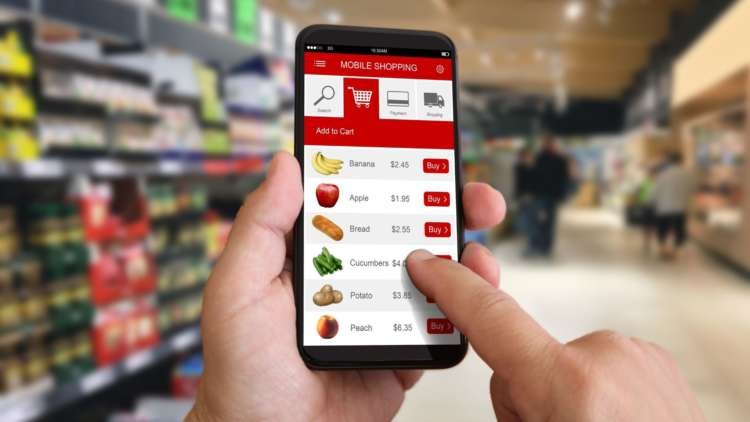The importance of app-based commerce to hospitality in the new normal
Published by linker 5
Posted on September 25, 2020
5 min readLast updated: January 21, 2026

Published by linker 5
Posted on September 25, 2020
5 min readLast updated: January 21, 2026

By Jeremy Nicholds CEO, Judopay
As society adapts to the rapidly changing “new normal” of working and socialising, many businesses are working tirelessly to ensure that they have all the necessary safety precautions in place to keep trading. One such sector is hospitality, but the way it typically operates now looks very different to what we were used to seeing prior to the pandemic.
Many pubs, restaurants and other hospitality establishments have now been open for a few months since lockdown, providing much relief and enjoyment to many consumers, as well as getting many employees back into work. However, a core component for businesses to maintain trading in these times is to ensure the crucial safety of staff and customers.
Payments are playing an important role in this and we’re seeing payment technology being implemented in new and unique ways to help make the hospitality sector as safe as possible. One such technology is app-based commerce, which allows businesses to interact with customers in ways that minimises physical contact whilst crucially still enabling engagement.
With table service now mandatory and Test and Trace measures continuing, we’re likely to see this technology being increasingly adopted in the months and years ahead. So, let’s take a look at what its use means for the hospitality industry and beyond and how it lines up with the government’s latest advice for businesses within the sector.
Understanding government guidance
Guidance issued from the UK government expands upon advice already offered by the Prime Minister to the hospitality sector, at the point of reopening back in July. It has been stated that all indoor hospitality is limited to table-service, interaction between staff and customers should be minimised as much as possible, masks are being enforced for indoor hospitality staff and the rule around groups of 6 continues.
At the same time, businesses now have a clear duty to support NHS Test and Trace by collecting names and contact details from customers so they can be reached if a customer/worker tests positive. This is a recent mandatory move having previously been guidance.
What’s more, it’s recognised that payments are a practical tool to help companies adhere to these guidelines. Throughout the pandemic it has emphasised that contactless payments are useful for reducing human interaction and touch points – such as PIN pads.
Early on, we saw the payment industry increase the authentication limit for contactless spending limit from £30 to £45 to help reduce cash purchases, cash machines and PIN pad usage. The Government are strongly encouraging the use of contactless payments in the hospitality sector, however, there’s a big part of the solution that they may have overlooked that can help hospitality businesses meet these guidelines with even greater ease – app-based commerce.
Why use apps?

Jeremy Nicholds
Apps provide a whole host of benefits and are the perfect tool for not only minimising contact, but also ensuring customers are contactable at a later date, if needs be.
While contactless payments eliminate the need for customers to pay using cash, or touch PIN pads, apps can remove physical human interaction at the point of sale altogether. This is because they enable customers to pay ahead or at the table, meaning they don’t need to leave their seats or regularly interact with staff. And done well they can even be a boost for business, enabling more convenient transactions and higher levels of repeat purchase.
When it comes to ensuring that customers are contactable, apps and e-wallets have a real advantage over traditional card-based transactions and anonymous cash payments. They allow companies to retain details about who has attended an establishment at a given time, enabling them to know whether a customer was present while a person known to be carrying the virus was in the vicinity. The communication advantages of apps also allow establishments to manage their footfall and customer flow.
The role of app-based commerce in the new normal
Apps will become more and more important for all types of businesses, as consumers shift their behaviour towards digital. They represent a new ‘real estate’ for retail and other businesses to manage – to present their brand in the right way, to engage customers and drive transactions.
Recently, we’ve seen Apple support this move towards app-based commerce with the launch of App Clips, further bolstering its use as we emerge from lockdown and encouraging safer and hygienic ways to pay.
App Clips are a great way for consumers to quickly access and experience what an app has to offer. They are fast and lightweight so a user can open them quickly and start and finish an experience from an app in seconds. And when they’re done, the business can offer the opportunity to download the full app from the App Store.
We are also seeing a number of hospitality businesses warming towards the use of app-based commerce and doing a great job of implementing it. The technology has already become central to the safe trading operations of big names in the industry such as Caffè Nero and The Young’s Pub, which are great examples of how to make apps work for your business.
As the industry steadily navigates its way through a new normal of operating, we expect that app-based commerce will skyrocket. In fact, we’ve already seen a great number of businesses throughout different industries expressing interest in the payment method, suggesting that it will play a pivotal role in moving forward. It certainly is a great way for businesses to keep staff and customers safe.
Explore more articles in the Technology category











